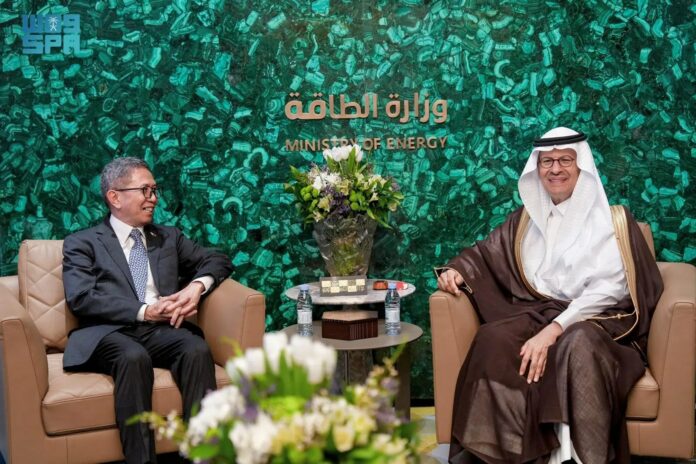The Department of Energy (DOE) is poised to finalize a collaborative energy roadmap with Saudi Arabia following a memorandum of understanding (MOU) signed last month. The roadmap, completed in three months, will lay out concrete steps for implementing joint initiatives outlined in the MOU between the DOE and Saudi Arabia’s Ministry of Energy.
In a statement, DOE Secretary Raphael Lotilla expressed optimism about the partnership, which follows discussions held during President Ferdinand Marcos Jr. ‘s state visit to Saudi Arabia in October 2023. That visit spurred interest from Saudi state-owned companies in investing in the Philippines’ energy sector.
“I welcome the joint efforts by both countries to implement the provisions of the MOU, which directly follows the productive talks held during President Marcos’ visit,” said Lotilla. “Saudi companies expressed a strong desire to invest in the Philippine energy sector, particularly in areas like petroleum derivatives, hydrogen exploration, and sustainable aviation fuel (SAF).”
The MOU outlines key areas of cooperation, including native hydrogen exploration, SAF production, energy efficiency, and the application of digital technology in electrical systems management. One area of particular interest is the Philippines’ potential for native hydrogen resources. According to Lotilla, Saudi Energy Minister Prince Abdulaziz bin Salman Al Saud and his team have expressed strong interest in exploring these resources, leveraging Saudi Arabia’s expertise in upstream energy sectors.
In support of the energy roadmap, the DOE earlier this year offered two hydrogen exploration sites in Zambales. Lotilla said the Philippines could also exploit its position as the world’s second-largest coconut producer, using non-food-grade coconuts to support SAF production, further enhancing the country’s energy sustainability.
The MOU also paves the way for collaboration in advanced technologies, including artificial intelligence (AI) and digital tools, to improve energy systems. Lotilla said the use of digital technology and AI could revolutionize the Philippine energy sector by enabling real-time monitoring, predictive maintenance, and more efficient energy forecasting.
The DOE expects the collaboration to bring mutual benefits, strengthening ties between the two nations and supporting the Philippines’ long-term energy goals.







